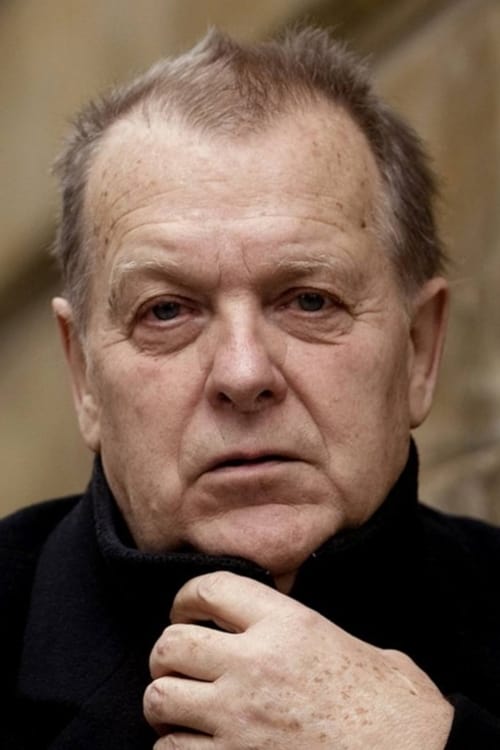
Self
The unique and enigmatic journey of the writer Milan Kundera: from communist Czechoslovakia to exile in Paris, from his quest for glory to his withdrawal from the media scene.
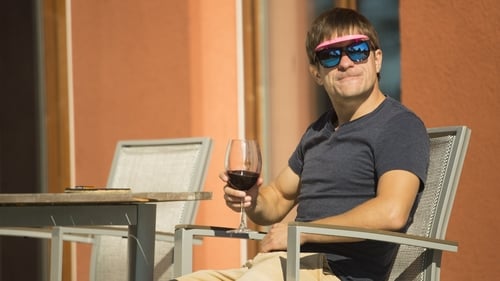
Writer
The film tells the life story of its director, Jan Nemec, one of the most known and important filmmakers of Czech New Wave.

Director
The film tells the life story of its director, Jan Nemec, one of the most known and important filmmakers of Czech New Wave.

Self
The film tells the life story of its director, Jan Nemec, one of the most known and important filmmakers of Czech New Wave.
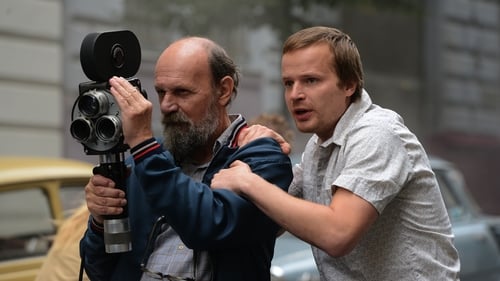
Story
Young director Honza David films the Russian invasion in in Prague in August 1968. With Eva the love of his life he tries to get out of the country. He wants to bring the explosive material to Vienna, to the director of the Austrian Television Helmut Zilk. He knows Eva very well but the Czech Secret Service even better ...
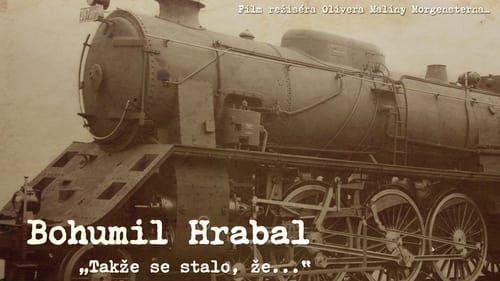
self

Writer
A visual dreamscape of Prague streets, a hallucinatory vision of a world from the operating table for robotic heart surgeries, collaged together with the stories narrated by the mysterious Dr. B, who is a gifted surgeon at the centre of a conspiracy and a criminal ring trafficking in human parts, especially hearts. Because that’s where the world has ended up – humans thirsting for endless lives and shadowy businessmen and dealmakers taking advantage of this hunger. Set to original music by Němec’s student and fellow filmmaker Petr Marek and his band Midi Lidi, the rich soundscape of the film creates a distinct counterpart to the freewheeling visuals shot digitally in 3D. The former Czech president Václav Havel makes an appearance in the film recalling a script he wrote in the 1960s with Němec, his distant cousin, which the present film utilises as a reflecting surface.

Director
A visual dreamscape of Prague streets, a hallucinatory vision of a world from the operating table for robotic heart surgeries, collaged together with the stories narrated by the mysterious Dr. B, who is a gifted surgeon at the centre of a conspiracy and a criminal ring trafficking in human parts, especially hearts. Because that’s where the world has ended up – humans thirsting for endless lives and shadowy businessmen and dealmakers taking advantage of this hunger. Set to original music by Němec’s student and fellow filmmaker Petr Marek and his band Midi Lidi, the rich soundscape of the film creates a distinct counterpart to the freewheeling visuals shot digitally in 3D. The former Czech president Václav Havel makes an appearance in the film recalling a script he wrote in the 1960s with Němec, his distant cousin, which the present film utilises as a reflecting surface.

It's nighttime in Prague, 21 August 1968. Soviet troops and tanks are occupying the city - random attacks, soldiers shooting, bodies lying dead on the sidewalk. With an impromptu crew, the director (Karel Roden) captures some unique evidence - material which is, however, worthless in occupied Prague; it has to be shown to the rest of the world. So, while the Soviets are concocting false reports of heartfelt receptions without military resistance for propaganda purposes, the director sets off on a risky trip across the closed Czech-Austrian border to Vienna.

Writer
It's nighttime in Prague, 21 August 1968. Soviet troops and tanks are occupying the city - random attacks, soldiers shooting, bodies lying dead on the sidewalk. With an impromptu crew, the director (Karel Roden) captures some unique evidence - material which is, however, worthless in occupied Prague; it has to be shown to the rest of the world. So, while the Soviets are concocting false reports of heartfelt receptions without military resistance for propaganda purposes, the director sets off on a risky trip across the closed Czech-Austrian border to Vienna.

Director
It's nighttime in Prague, 21 August 1968. Soviet troops and tanks are occupying the city - random attacks, soldiers shooting, bodies lying dead on the sidewalk. With an impromptu crew, the director (Karel Roden) captures some unique evidence - material which is, however, worthless in occupied Prague; it has to be shown to the rest of the world. So, while the Soviets are concocting false reports of heartfelt receptions without military resistance for propaganda purposes, the director sets off on a risky trip across the closed Czech-Austrian border to Vienna.

Idea
A neon heart installed above Prague Castle illuminated the city for the last three months of Václav Havel’s presidency in an artist’s tribute to his extraordinary service. His last major undertaking was hosting the NATO summit in 2002 and Němec was granted extraordinary access to film it. Set to make a “special poetic film”, it took Němec years to process what he had witnessed – George W. Bush creating an alliance to invade Iraq. It may then be the director’s revenge to point his camera lens democratically at everyone involved with the summit, giving the same screen time to kitchen and waiting staff, musicians, security detail and NATO protesters, as to the heads of states and attending dignitaries. Havel however, became as much of a subject as the president on screen, and the film’s narrator, providing commentary in his own voice from the distance of a few years after he left the office.

Camera Operator
A neon heart installed above Prague Castle illuminated the city for the last three months of Václav Havel’s presidency in an artist’s tribute to his extraordinary service. His last major undertaking was hosting the NATO summit in 2002 and Němec was granted extraordinary access to film it. Set to make a “special poetic film”, it took Němec years to process what he had witnessed – George W. Bush creating an alliance to invade Iraq. It may then be the director’s revenge to point his camera lens democratically at everyone involved with the summit, giving the same screen time to kitchen and waiting staff, musicians, security detail and NATO protesters, as to the heads of states and attending dignitaries. Havel however, became as much of a subject as the president on screen, and the film’s narrator, providing commentary in his own voice from the distance of a few years after he left the office.

Screenplay
A neon heart installed above Prague Castle illuminated the city for the last three months of Václav Havel’s presidency in an artist’s tribute to his extraordinary service. His last major undertaking was hosting the NATO summit in 2002 and Němec was granted extraordinary access to film it. Set to make a “special poetic film”, it took Němec years to process what he had witnessed – George W. Bush creating an alliance to invade Iraq. It may then be the director’s revenge to point his camera lens democratically at everyone involved with the summit, giving the same screen time to kitchen and waiting staff, musicians, security detail and NATO protesters, as to the heads of states and attending dignitaries. Havel however, became as much of a subject as the president on screen, and the film’s narrator, providing commentary in his own voice from the distance of a few years after he left the office.

Director
A neon heart installed above Prague Castle illuminated the city for the last three months of Václav Havel’s presidency in an artist’s tribute to his extraordinary service. His last major undertaking was hosting the NATO summit in 2002 and Němec was granted extraordinary access to film it. Set to make a “special poetic film”, it took Němec years to process what he had witnessed – George W. Bush creating an alliance to invade Iraq. It may then be the director’s revenge to point his camera lens democratically at everyone involved with the summit, giving the same screen time to kitchen and waiting staff, musicians, security detail and NATO protesters, as to the heads of states and attending dignitaries. Havel however, became as much of a subject as the president on screen, and the film’s narrator, providing commentary in his own voice from the distance of a few years after he left the office.


Producer
Jan Nemec, a leading filmmaker of the Czech New Wave, creates an original portrait of one of the most provocative artists of the 20th century: Toyen (Marie Cerminova). As a female artist, Toyen broke through the male-dominated art world to create paintings and drawings often erotic in nature. She co-founded the surrealist movement in her native Prague, survived the Nazis and the Communists, maintained artistic and personal relationships with artists Jindrich Heisler (whom she hid during WWII) and Jindrich Styrsky.

Screenplay
Jan Nemec, a leading filmmaker of the Czech New Wave, creates an original portrait of one of the most provocative artists of the 20th century: Toyen (Marie Cerminova). As a female artist, Toyen broke through the male-dominated art world to create paintings and drawings often erotic in nature. She co-founded the surrealist movement in her native Prague, survived the Nazis and the Communists, maintained artistic and personal relationships with artists Jindrich Heisler (whom she hid during WWII) and Jindrich Styrsky.

Commentary (voice)
Jan Nemec, a leading filmmaker of the Czech New Wave, creates an original portrait of one of the most provocative artists of the 20th century: Toyen (Marie Cerminova). As a female artist, Toyen broke through the male-dominated art world to create paintings and drawings often erotic in nature. She co-founded the surrealist movement in her native Prague, survived the Nazis and the Communists, maintained artistic and personal relationships with artists Jindrich Heisler (whom she hid during WWII) and Jindrich Styrsky.

Director
Jan Nemec, a leading filmmaker of the Czech New Wave, creates an original portrait of one of the most provocative artists of the 20th century: Toyen (Marie Cerminova). As a female artist, Toyen broke through the male-dominated art world to create paintings and drawings often erotic in nature. She co-founded the surrealist movement in her native Prague, survived the Nazis and the Communists, maintained artistic and personal relationships with artists Jindrich Heisler (whom she hid during WWII) and Jindrich Styrsky.

Himself
Ester Krumbachová - a costume designer, screenwriter, director; one of the boldest personalities of the Czech New Wave. She worked in theatre, she was a writer and an illustrator. She co-created films such as O slavnosti a hostech (1966), Sedmikrásky (1966), Vsichni dobrí rodáci (1969), Pension pro svobodné pány (1968), Valerie a týden divu (1970), Slamený klobouk (1972) and many others. In the 1960s, she was a 'pivot' of the art scene in Prague, attracting artists who were on the threshold of their career, just setting out to find their own form of self-realization. Those who underwent her tutelage remember her forever. Director Vera Chytilová talks to those who knew Ester Krumbachová, who worked with her, befriended her, loved her. She sets off on a search that is to end by answering the question: Who was Ester?

Director
A visit to Prague by the most powerful man in the world coincides with Jan Němec's heart operation. He captures both events in a philosophical video diary, in doing so reporting on what is probably the most important day of his life.

Producer
Taking a cue from Franz Kafka's "Letter to My Father," this highly personal film follows Czech director Jan Nemec as he attempts to engage in a dialogue with his deceased mother. While alive, Nemec's mother had a troubled relationship with her son; this rumination seems to be Nemec's public platform for coming to terms with unresolved familial issues. The director embellishes his film by linking personal events with 20th century history.

Cinematography
Taking a cue from Franz Kafka's "Letter to My Father," this highly personal film follows Czech director Jan Nemec as he attempts to engage in a dialogue with his deceased mother. While alive, Nemec's mother had a troubled relationship with her son; this rumination seems to be Nemec's public platform for coming to terms with unresolved familial issues. The director embellishes his film by linking personal events with 20th century history.

Music
Taking a cue from Franz Kafka's "Letter to My Father," this highly personal film follows Czech director Jan Nemec as he attempts to engage in a dialogue with his deceased mother. While alive, Nemec's mother had a troubled relationship with her son; this rumination seems to be Nemec's public platform for coming to terms with unresolved familial issues. The director embellishes his film by linking personal events with 20th century history.

Writer
Taking a cue from Franz Kafka's "Letter to My Father," this highly personal film follows Czech director Jan Nemec as he attempts to engage in a dialogue with his deceased mother. While alive, Nemec's mother had a troubled relationship with her son; this rumination seems to be Nemec's public platform for coming to terms with unresolved familial issues. The director embellishes his film by linking personal events with 20th century history.

Director
Taking a cue from Franz Kafka's "Letter to My Father," this highly personal film follows Czech director Jan Nemec as he attempts to engage in a dialogue with his deceased mother. While alive, Nemec's mother had a troubled relationship with her son; this rumination seems to be Nemec's public platform for coming to terms with unresolved familial issues. The director embellishes his film by linking personal events with 20th century history.

Jan Němec
Taking a cue from Franz Kafka's "Letter to My Father," this highly personal film follows Czech director Jan Nemec as he attempts to engage in a dialogue with his deceased mother. While alive, Nemec's mother had a troubled relationship with her son; this rumination seems to be Nemec's public platform for coming to terms with unresolved familial issues. The director embellishes his film by linking personal events with 20th century history.
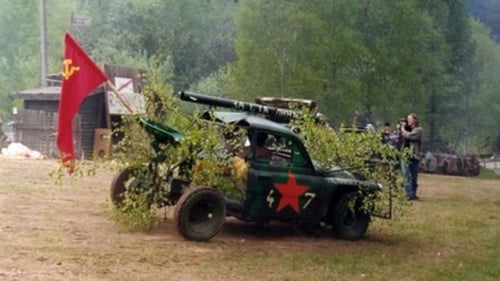
A labyrinthine portrait of Czech culture on the brink of a new millennium. Egon Bondy prophesies a capitalist inferno, Jim Čert admits to collaborating with the secret police, Jaroslav Foglar can’t find a bottle-opener, and Ivan Diviš makes observations about his own funeral. This is the Czech Republic in the late 90s, as detailed in Karel Vachek’s documentary.

Writer
This controversial feature blends documentary, archival footage and fiction into an elliptical narrative in which two young people in Prague, an ancient seat for the practice of alchemy, follow the trail for the mystical philosopher's stone. History and future blend as brilliant montage sequences and fanciful leaps of the imagination work to posit questions about the legacy of the past and how it influences the individual's personal freedom and responsibility.

Director
This controversial feature blends documentary, archival footage and fiction into an elliptical narrative in which two young people in Prague, an ancient seat for the practice of alchemy, follow the trail for the mystical philosopher's stone. History and future blend as brilliant montage sequences and fanciful leaps of the imagination work to posit questions about the legacy of the past and how it influences the individual's personal freedom and responsibility.

Scenario Writer
In 1992, Prague is the capital of a small kingdom. The prince is supposed to choose his bride to be at a royal ball. But to everybody's surprise, he chooses an ugly cleaning-woman. She is shy and silent, but after the marriage she turns into a wild and rumbustious woman with an obstinate and stubborn mind. They both try to kill each other, but the queen is thrown into the dungeons.

Director
In 1992, Prague is the capital of a small kingdom. The prince is supposed to choose his bride to be at a royal ball. But to everybody's surprise, he chooses an ugly cleaning-woman. She is shy and silent, but after the marriage she turns into a wild and rumbustious woman with an obstinate and stubborn mind. They both try to kill each other, but the queen is thrown into the dungeons.

Dezsö Horváth
A influência dos movimentos libertários dos anos 60 na vida de uma família de imigrantes húngaros, radicada em São Francisco.
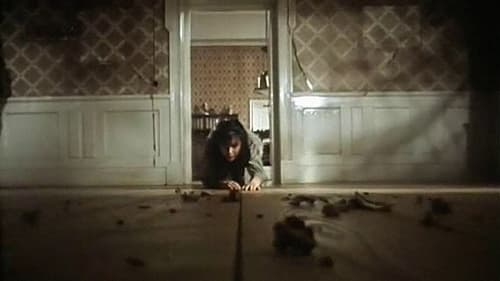
Writer
An adaptation of Franz Kafka's classic story about Gregor Samsa, a man who awakes and sees himself suddenly turned into a repulsive insect.

Director
An adaptation of Franz Kafka's classic story about Gregor Samsa, a man who awakes and sees himself suddenly turned into a repulsive insect.

Director
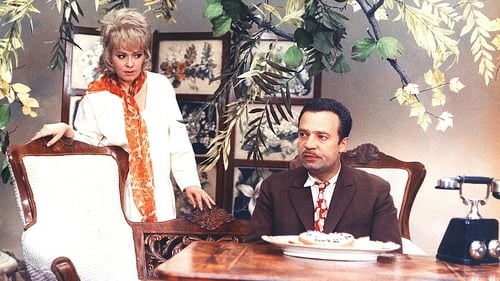
Screenplay
Comedy with fairy-tale touches, about Kate, who wants to marry, and Mr. Devil, who is not interested in the heart or soul of this passionate and aging lady, but is interested in her good cooking – for Mr. Devil is a glutton.

(uncreditted)
Comedy with fairy-tale touches, about Kate, who wants to marry, and Mr. Devil, who is not interested in the heart or soul of this passionate and aging lady, but is interested in her good cooking – for Mr. Devil is a glutton.

Director

Screenplay

Story

Director
Student demonstrations in Strahov are shown in this illegally made film by a film professional with access to 35mm cameras and collaborating laboratories.

Director
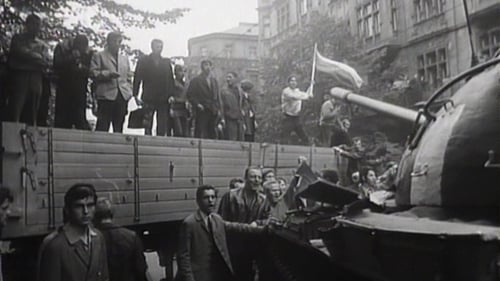
Self
Filmmaker Jan Nemec and his crew risked their lives to create this historic documentary account of the 1968 Soviet invasion of Czechoslovakia. The award-winning work is the only filmed record of the invasion. Oratorio for Prague began as a study of the liberalization of Czechoslovakia and then continued when the Russian forces moved in. The gripping footage was broadcast by television, providing the first report of the event. In addition to the news footage, the film features never-before-viewed scenes taken prior to the invasion that crushed Prague's anti-Communist movement.

Director
Filmmaker Jan Nemec and his crew risked their lives to create this historic documentary account of the 1968 Soviet invasion of Czechoslovakia. The award-winning work is the only filmed record of the invasion. Oratorio for Prague began as a study of the liberalization of Czechoslovakia and then continued when the Russian forces moved in. The gripping footage was broadcast by television, providing the first report of the event. In addition to the news footage, the film features never-before-viewed scenes taken prior to the invasion that crushed Prague's anti-Communist movement.

Director

Screenplay

Screenplay
Esta balada em três partes, que muitas vezes usa a música para substituir o diálogo, continua a ser a forma de realização mais perfeita da visão de Nemec de um mundo de filmes independentes da realidade. Montando uma defesa de indivíduos tímidos, inibidos, desajeitadas, e mal sucedidas, os três protagonistas são uma antítese completa dos heróis industriosos de estética socialista. Os Mártires do Amor consolidou a reputação de Nemec como o tipo desenfreado não-conformista do estabelecimento Comunista considerado o mais perigoso para a sua ideologia.

Story
Esta balada em três partes, que muitas vezes usa a música para substituir o diálogo, continua a ser a forma de realização mais perfeita da visão de Nemec de um mundo de filmes independentes da realidade. Montando uma defesa de indivíduos tímidos, inibidos, desajeitadas, e mal sucedidas, os três protagonistas são uma antítese completa dos heróis industriosos de estética socialista. Os Mártires do Amor consolidou a reputação de Nemec como o tipo desenfreado não-conformista do estabelecimento Comunista considerado o mais perigoso para a sua ideologia.

Director
Esta balada em três partes, que muitas vezes usa a música para substituir o diálogo, continua a ser a forma de realização mais perfeita da visão de Nemec de um mundo de filmes independentes da realidade. Montando uma defesa de indivíduos tímidos, inibidos, desajeitadas, e mal sucedidas, os três protagonistas são uma antítese completa dos heróis industriosos de estética socialista. Os Mártires do Amor consolidou a reputação de Nemec como o tipo desenfreado não-conformista do estabelecimento Comunista considerado o mais perigoso para a sua ideologia.

Screenplay
Na fábula surreal de Jan Němec, um piquenique é grosseiramente transformado numa lição de hierarquia política quando um punhado de figuras de autoridade misteriosa aparecem. Esta alegoria sobre opressão e conformidade foi banida no país de origem, mas tornou-se um sucesso internacional depois de estrear no Festival de Cinema de Nova York.

Director
Na fábula surreal de Jan Němec, um piquenique é grosseiramente transformado numa lição de hierarquia política quando um punhado de figuras de autoridade misteriosa aparecem. Esta alegoria sobre opressão e conformidade foi banida no país de origem, mas tornou-se um sucesso internacional depois de estrear no Festival de Cinema de Nova York.

Self
Documentary about the film academy in Prague and the Czech Film in 1965.
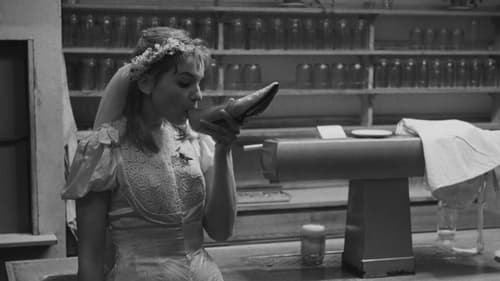
Screenplay
A manifesto of sorts for the Czech New Wave, this five-part anthology shows off the breadth of expression and the versatility of the movement’s directors. Based on stories by the legendary writer Bohumil Hrabal, the shorts range from the surreally chilling to the caustically observant to the casually romantic, but all have a cutting, wily view of the world.

Director
A manifesto of sorts for the Czech New Wave, this five-part anthology shows off the breadth of expression and the versatility of the movement’s directors. Based on stories by the legendary writer Bohumil Hrabal, the shorts range from the surreally chilling to the caustically observant to the casually romantic, but all have a cutting, wily view of the world.

Writer
A tense, brutal story of two Jewish boys who escape from a train transporting them from one concentration camp to another. Ultimately, they are hunted down by a group of old, armed home-guardists. The film goes beyond the themes of war and anti-Nazism and concerns itself with man's struggle to preserve human dignity.

Screenplay
A tense, brutal story of two Jewish boys who escape from a train transporting them from one concentration camp to another. Ultimately, they are hunted down by a group of old, armed home-guardists. The film goes beyond the themes of war and anti-Nazism and concerns itself with man's struggle to preserve human dignity.

Director
A tense, brutal story of two Jewish boys who escape from a train transporting them from one concentration camp to another. Ultimately, they are hunted down by a group of old, armed home-guardists. The film goes beyond the themes of war and anti-Nazism and concerns itself with man's struggle to preserve human dignity.

First Assistant Director

Assistant Director
Based on a novel by Maria Majerova, this well-photographed but routine romantic drama is directed and co-scripted by Vaclav Krska. Set in a more old-fashioned time, the story centers around Lenka (Suzana Fisarskova), a young woman with a domineering, psychologically abusive father. When Lenka falls in love she suffers the ultimate injustice when her father and her family forbid her to marry the man. They see no advantage in such a union and want her to marry a wealthy local landowner instead, for obvious reasons. But Lenka is not as submissive as they think and she runs away to the city to look for the man she loves -- only to find a serious problem, though a surmountable one, is waiting for her.
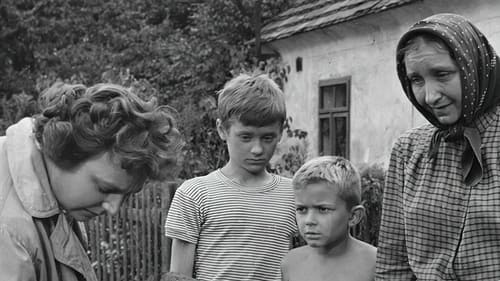
Assistant Director

(segment "In Pursuit")

Writer
By the end of the second World War, three prisoners wish to escape from the train carrying them from one concentration camp to another. To make it happen, they need to get food first.

Director
By the end of the second World War, three prisoners wish to escape from the train carrying them from one concentration camp to another. To make it happen, they need to get food first.

Assistant Director
